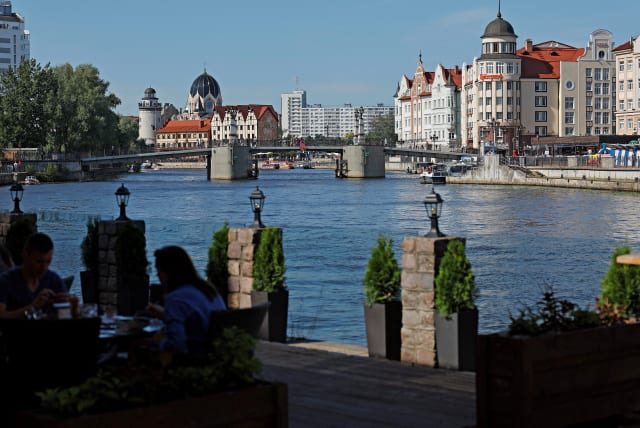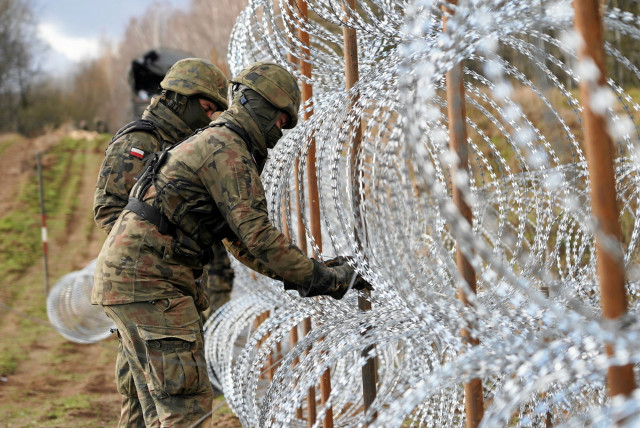Russia calls Polish decision to rename Kaliningrad a 'hostile act'

Kaliningrad, which sits in an exclave that is sandwiched between Lithuania and Poland on the Baltic coast, was known by the German name of Koenigsberg until after World War II.
The Kremlin said on Wednesday that Poland's decision to rename the Russian city of Kaliningrad in its official documents was a "hostile act", as ties continue to fray over the Ukraine war.
Kaliningrad, which sits in an exclave that is sandwiched between Lithuania and Poland on the Baltic coast, was known by the German name of Koenigsberg until after World War II, when it was annexed by the Soviet Union and renamed to honor politician Mikhail Kalinin.
Warsaw says Kalinin's connection to the 1940 Katyn massacre - when thousands of Polish officers were executed by Soviet forces - had negative connotations and that the city should now be referred to as Krolewiec, its name when it was ruled by the Kingdom of Poland in the 15th and 16th centuries.
"The current Russian name of this city is an artificial baptism unrelated to either the city or the region," Poland's committee on geographical standardisation said on Tuesday.
Kremlin spokesman Dmitry Peskov said the decision "bordered on madness".
"We know that throughout history Poland has slipped from time to time into this madness of hatred towards Russians," he told a briefing.
Kaliningrad was cut off from Moscow when Lithuania became independent during the break-up of the Soviet Union in 1991.
In the city itself, people questioned in the street were split over the Polish move
"(This land) is conquered by us, by my ancestors ... this is our territory and there can be no Krolewiec whatsoever," said an elderly man who did not give his name.
Others appeared to be less upset. One woman noted Lithuania had also renamed the city Krolewiec.
"Nothing would change ... apart from need to change all their documents. If they want it, let them do it," she said.
Relations between Poland and Russia have historically often been very strained.
Moscow says it liberated Poland when its forces drove out Nazi forces at the end of the war. Most Poles believe the Soviet Union replaced Nazi occupation with another form of repression.
Poland, a NATO member, strongly backed Ukraine after Russia's invasion, and has stepped up the demolition of memorials to fallen Soviet troops across the country.
Jerusalem Post Store
`; document.getElementById("linkPremium").innerHTML = cont; var divWithLink = document.getElementById("premium-link"); if (divWithLink !== null && divWithLink !== 'undefined') { divWithLink.style.border = "solid 1px #cb0f3e"; divWithLink.style.textAlign = "center"; divWithLink.style.marginBottom = "15px"; divWithLink.style.marginTop = "15px"; divWithLink.style.width = "100%"; divWithLink.style.backgroundColor = "#122952"; divWithLink.style.color = "#ffffff"; divWithLink.style.lineHeight = "1.5"; } } (function (v, i) { });

